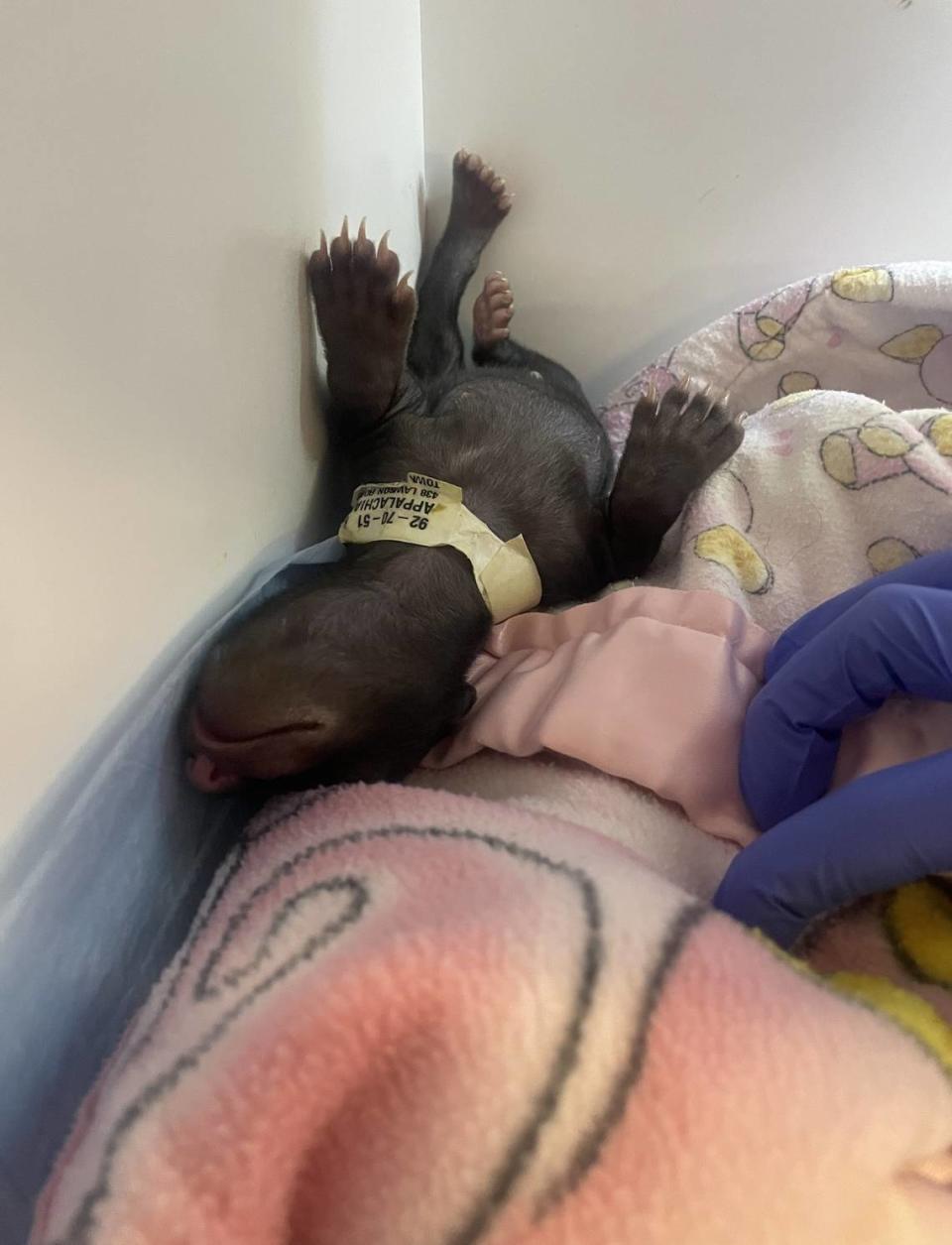2 bear cubs rescued in Georgetown County wildfire. They’re the size of a Coke can
Two black bear cubs rescued from a wildfire in Georgetown County are now being cared for by a Tennessee bear rescue group.
Pawley and Carolina, a boy and girl, are believed to be about a week old and weigh about 11 ounces - about the size of a Coke can, according to Dana Dodd, executive director of the Appalachian Bear Rescue. The siblings were found in a den.

“The truth is is that they are so incredibly fragile,” Dodd said. “They need their mother.”
It is unclear what happened to the mother bear, Dodd said.
The cubs were transported Jan. 30 to Appalachian Bear Rescue by biologist Tammy Waldrop with the South Carolina Department of Natural Resources, according to a Facebook post from the rescue group.
The bears were found in their den Jan. 29 when firefighters accidentally disturbed the den site with their equipment, the post said.
Firefighters were with the South Carolina Forestry Commission, according to SCDNR spokesman Greg Lucas.
As they continued to work, firemen heard crying in the area. They searched through the brush and found two tiny cubs.
Firefighters gathered the cubs and warmed them with blankets. A fireman took the cubs home to keep them warm through early morning, the post said. The firefighter contacted SCDNR Bear Biologist Kayla Brantley in Georgetown County who immediately went to retrieve the two cubs.
The bear rescue group is located in Townsend, Tennessee, more than eight hours from Georgetown County. They met the biologist in Spartanburg for the transfer. The post said that many people don’t realize there’s a sizable population of black bears in the area.
The bears are considered neonates because of their size. They have been in an incubator at the University of Tennessee College of Veterinary Medicine, Dodd said. They are sharing an incubator with a Tennessee cub, Bits, who was brought to the rescue center on Jan. 24.
“We were very surprised,” Dodd said about receiving the bears in January.
It is during this time that bears have their babies in their dens in a period in January and early February, Dodd said. Bears have cubs every other year. When a bear cub is born, the mother doesn’t usually leave the den, Dodd said. It is believed she may have been scared by the equipment and noise.
The rescue group, which has been in operation for 28 years, has only received one other cub in January. In several days, they received four.
The bears have to be bottle fed every few hours. The bears’ eyes are currently closed and they can’t hold up their heads, which are heavier than their bodies, Dodd said.
It’s not until April when bears usually leave the den and toddle after their mother, she said.

